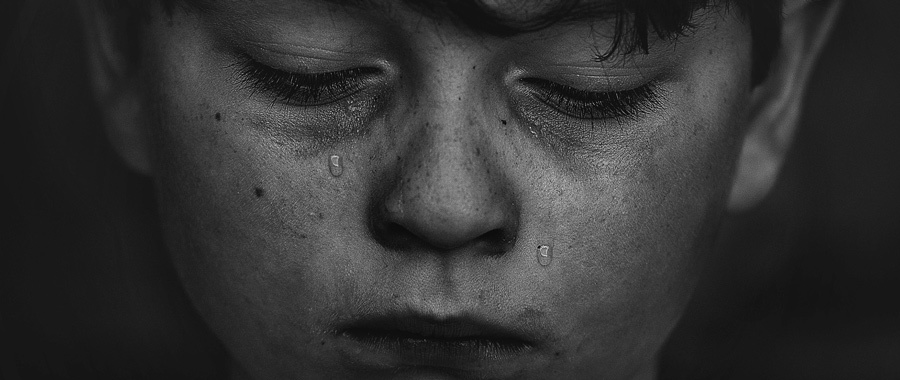In contemporary society, the heart-wrenching phenomenon of mass shootings evokes myriad responses, prompting inquiries that venture into the realms of psychology, sociology, and morality. Among these inquiries emerges the provocative question: Can religion, particularly the Bahá’í teachings, play a pivotal role in mitigating such tragedies? This discourse seeks to navigate through the multifaceted perspectives on this disquieting issue, elucidating the potential contributions of religious principles to a more harmonious society.
To commence, one must grapple with the sociocultural milieu that engenders violence. Mass shootings are not merely isolated incidents; they are symptomatic of deeper societal malaise. The Bahá’í Faith emphasizes the interdependence of humanity, positing that collective wellbeing is intrinsically linked to the individual’s moral and ethical development. By fostering a culture that prioritizes unity and compassion, Bahá’í teachings advocate for a societal framework where empathy supplants animosity. Thus, the path to preventing violence may well lie in our ability to cultivate understanding and respect for one another’s humanity.
Moreover, the Bahá’í perspective on education elucidates the importance of nurturing the minds and hearts of the youth. Education is not simply an intellectual pursuit but a moral imperative. The teachings assert that the education of children must encompass not only academic knowledge but also ethical and spiritual development. Consider, for instance, an educational system infused with Bahá’í principles that encourages the exploration of virtues such as kindness, patience, and selflessness. When young minds are imbued with these values, their innate capacity for violence may diminish, as they learn to value coexistence over conflict.
Critically, another dimension to this discourse pertains to the concept of justice vexing our society. In Bahá’í teachings, justice is exalted as a foundational principle, imperative for societal flourishing. The invocation of justice serves as a call to address systemic inequalities that often underlie acts of violence. If we are to confront the root causes of mass shootings—be they economic disparity, social alienation, or racial discrimination—a recalibration of our justice system may be requisite. The Bahá’í teachings implore humanity to seek a balance wherein justice and mercy are harmonized, steering society towards reconciliation rather than retribution.
This exploration inevitably leads to the invocation of prayer and spiritual practices as instruments for individual and communal transformation. Prayer, a vital component of the Bahá’í Faith, operates on multiple levels. It serves as a mechanism for personal reflection, fostering inner peace and fortitude amidst chaos. Additionally, collective prayers and gatherings can cultivate a sense of unity and shared purpose, vital in an age often marred by division. When communities engage in spiritual practices together, they forge connections that transcend superficial differences and establish a foundation upon which collaborative solutions to violence can be constructed.
Nevertheless, can one genuinely expect religion to address such modern predicaments? This query prompts a paradigm shift in how one perceives the role of religion in societal issues. Religion, when wielded as a tool for reconciliation and moral elevation, has the potential to engender not just individual transformation but also communal harmony. However, this reclamation of religion’s rightful place in public discourse is fraught with challenges. In contemporary society, religion is often relegated to the periphery, viewed with skepticism or outright dismissal. Thus, advocating for its role in preventing violence necessitates a bold reimagining of its capacity for societal relevance.
Furthermore, the notion of universal peace—an essential tenet of Bahá’í teachings—encompasses the call for global cooperation and mutual respect among diverse cultures and religions. The Bahá’í vision transcends parochial boundaries, urging humanity toward a collective understanding of peace rooted in justice. This aspiration demands active engagement from all sectors of society, including religious institutions that must articulate a relevant narrative in the contemporary landscape. When major religious organizations rally around initiatives aimed at peace-building and social cohesion, there emerges a powerful front against the pervasive culture of violence.
Equally salient is the issue of accountability and the moral responsibility of individuals and communities in fostering environments conducive to peace. The Bahá’í teachings emphasize the implications of collective responsibility. Each person possesses the innate capacity to influence the collective outcome, thereby challenging the nihilistic perception of individual actions’ efficacy. This call for personal accountability should empower individuals to engage proactively in their communities, advocating for policies that address the underlying causes of violence while promoting restorative justice practices.
Ultimately, the challenge lies not merely in identifying the role of religion in preventing mass shootings but also in actualizing its teachings within society. The Bahá’í principles, rooted in unity, justice, and peace, offer a framework conducive to addressing the root causes of violence. While the complexities of human behavior and societal structure cannot be reduced to simplistic solutions, the infusion of spiritual teachings into our collective consciousness can illuminate pathways toward healing and transformation. The query remains: Are we willing to embrace these principles authentically and courageously, or will we allow the specter of violence to perpetuate unchecked?
As we deliberate on these profound questions, it becomes imperative to recognize that the responsibility for a peaceful society rests not solely on the shoulders of any single institution or individual but rather on the collective commitment to fostering a culture grounded in Bahá’í teachings. In this commitment lies the potential for genuine transformation—where religion becomes a beacon of hope in humanity’s shared journey toward a future devoid of violence and brimming with understanding.
